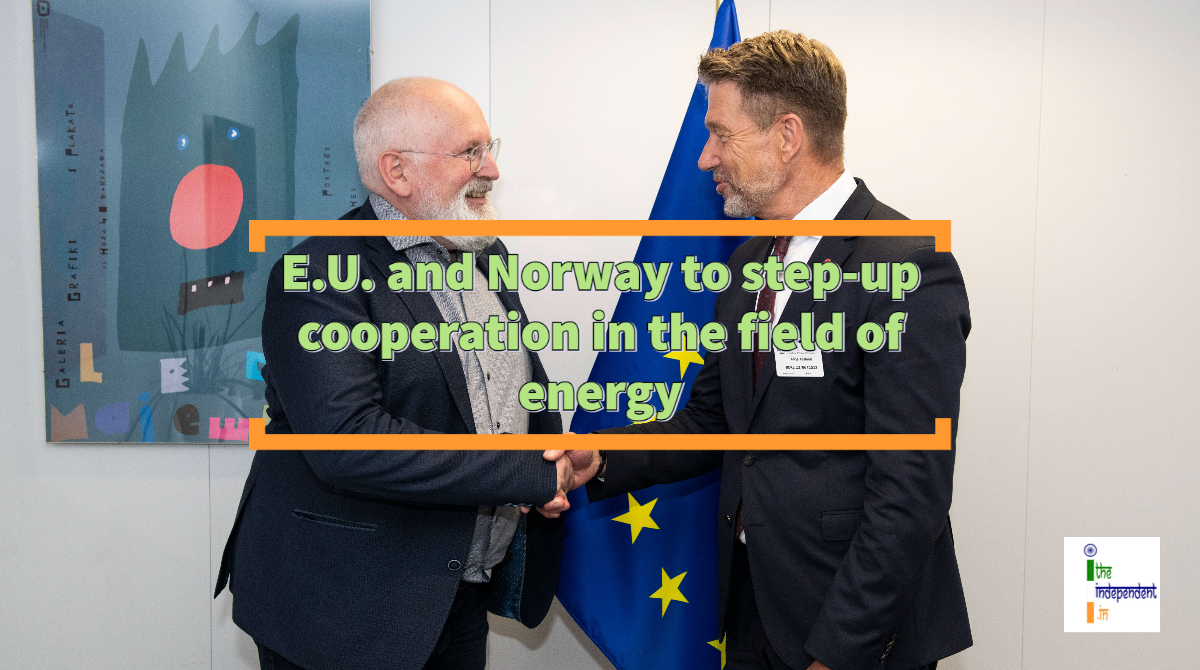
E.U. is looking to reduce dependency on Russian oil in the wake of the Russian invasion of Ukraine
The European Union (E.U.) and Norway have announced to strengthen the close cooperation in the field of energy, with a view to deepen their long-term energy partnership.
This comes at a time when E.U. is looking to reduce dependency on Russian oil in the wake of the Russian invasion of Ukraine. E.U. and Norway agreed sharing common fundamental values, climate objectives and a common regulatory framework through the European Economic Area (EEA), as well as a continuous energy policy dialogue.
Prior to the Ukraine war, E.U. was importing 40% of its energy requirements from Russia. Norway is the biggest producer of oil and gas in Europe supplying 1/4th of the total requirement of the E.U.
Taking it to twitter, the European Commission tweeted,
The EU and Norway as partners and allies share common values and climate objectives.
— European Commission 🇪🇺 (@EU_Commission) June 24, 2022
We agreed to step up our cooperation to ensure additional gas supplies and address the issue of high energy prices.
Read the 🇪🇺🇳🇴 joint statement ↓
Executive Vice-President for the European Green Deal – Frans Timmermans, E.U. Commissioner for Energy – Kadri Simson and Norwegian Minister of Petroleum and Energy – Terje Aasland agreed to step up cooperation in order to ensure additional short-term and long-term gas supplies from Norway. They also agreed to address the issue of high energy prices and to develop long-term cooperation on offshore renewable energy, hydrogen, carbon capture and storage, and energy research and development with a view to developing an even deeper long-term energy partnership.
It is to be noted that average CO2 and methane-emissions from production of oil and gas in Norway is low in a global context, less than half of the global average. Norway and the E.U. are committed to the Paris Agreement and to reaching net-zero emissions by 2050 and to working together to ensure a clean energy transition with reliable access to energy.
The oil and gas producing companies in Norway are currently producing gas at very high capacity. Given the high production levels seen in Norway in the first months of the year, a trend that is anticipated to continue for the rest of the year, there is strong potential for increased sales to Europe in 2022, bringing close to 100 TWh of extra energy to the European market.
E.U. and Norway both want to ensure orderly and well-functioning markets for gas and electricity, recognising the impact of high energy prices on households and the economy in both the E.U. and Norway.
Norway has significant remaining oil and gas resources and can continue to be a large supplier to Europe in the longer term, through continued exploration, new discoveries and field developments.







